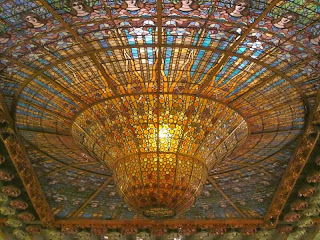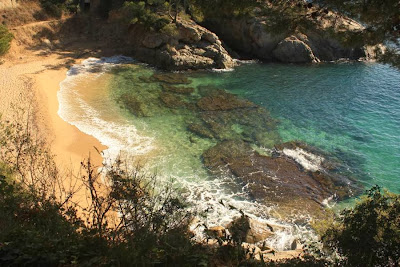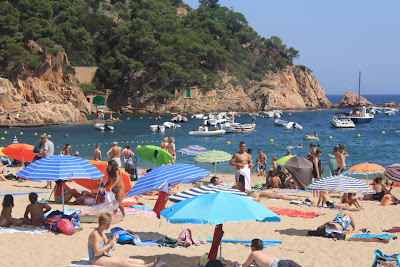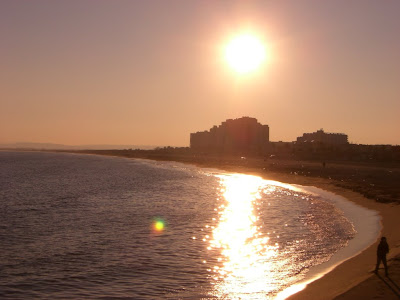Tarraco is the ancient name of the current city of Tarragona and it was one of the most important cities of the Roman empire.
Up to 14 monuments are included in the documentation of Tarragona as a World Heritage Site by UNESCO. Some of them are the amphitheater, the Roman Circus and the Praetorian Tower Forum, converted into royal residence in XIVth century.
Besides the remains of the Roman walls realize the strategic importance of the Roman Tarraco.
Scale model of Imperial Tarraco. The upper area was dedicated to the temple (current location of the cathedral), the second terrace was a large arcaded square where the Provincial Forum was, then the circus and below towards the Port there was the residential area. In the foreground is the amphitheater, which still exists. (Picture obtained from Wikipedia, Author: Amad Alvarez)
So, some of the most important monuments of Tarraco are:
- Amphitheater
- Tower of Pretorio
- Circus
- City Walls
- Via Imperial
- Aqueduct
- Triumphal Arc de Berà
Amphitheater
The amphitheater completed the trilogy of show buildings (theater, circus and amphitheater) which a distinctive Roman city and capital of one of the imperial provinces had to have
The amphitheater of Tarraco was located outside the town, but close to the city and the Via Augusta, shortly before it goes into the city. It was also located beside the beach
In the amphitheater of Tarraco were organized two types of activities: gladiator fights and the fights or hunts of wild animals
The Christian bishop Fructuoso and his two deacons were burnt alive in the elliptical arena of the amphitheater of Tarraco. This led to the construction of a sixth century basilica dedicated to the cult of martyrs.

Inside the amphitheater of Tarraco, during the twelfth century was built the Romanesque church of Santa Maria del Miracle on the early Christian basilica.
Tower of Pretorio

Pretorian Tower, the entrance of the Provincial Forum of Tarraco
Circus of Tarraco
The circus of Tarraco was, without any doubt, the most popular mass entertainment of the Roman world. In this site chariot races were disputed
The Circus of Tarraco was built in the late first century after Christ and was part of the great provincial monumental complex
The Roman Circus of Tarraco was 325 m long and between 100 and 115 m wide
City Walls
One of the defense towers of the City Walls of Tarraco
Via Imperial
Via Imperial in Tarragona
Aqueduct of Tarraco
In the forest a few kilometers north of Tarragona, a Roman arch bridge carrying an aqueduct has been preserved. It is known locally as "Devil's Bridge"
The Aqueduct of Tarraco, which spans a valley about 4 km north of Tarragona
Arc de Berà
The Arc de Berà is a triumphal arch some 20 km north of the city of Tarragona. It stands on the line of what was the Via Augusta, now the N-340 road. It is a triumphal arch with a single opening consisting of a central body on a podium, decorated with fluted pilasters crowned by Corinthian capitals. It is thought it was dedicated to Augusts or to his genius
Near Tarraco there are many places to visit like:
- Salou
- Port Aventura
- Reus Modernist architecture itinerary
- Delta de l'Ebre (Ebro Delta)
- The beautiful beaches and coves of L'Ametlla de Mar
- Miami Playa
- Castle of Tamarit
- Roc de Sant Gaietà
- The medieval village of Montblanc
- The Cistercian monasteries of Poblet and Santes Creus
- The medieval village of Siurana
- The medieval village of Miravet
- The sand beaches of Cunit
- The Iberian citadel of Calafell
- Playing golf in Golf Costa Dorada Tarragona



























































